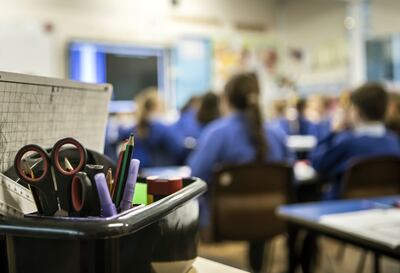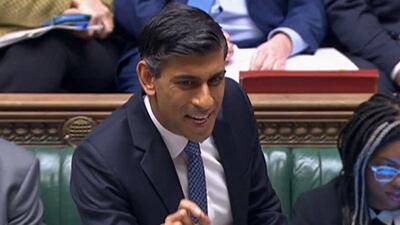Rishi Sunak on Wednesday staunchly defended the Conservative government’s policy of allowing private schools to have charitable status and therefore be entitled to taxpayers’ money.
Keir Starmer, the Labour leader, called for an end to the “Tory scandal” which allows private institutions that charge pupils thousands of pounds in annual fees to receive vast amounts of public funding.
He questioned why the government had given “nearly £6 million [$7.2 million] of taxpayers’ money this year” to Winchester College — a personal dig at the Prime Minister who was educated at the renowned boarding school in Hampshire.
The opposition leader argued that rather than allocating £1.7 billion to private schools each year, the cash would be better spent on improving standards in state schools.
Mr Sunak said by taking aim at his private education, the Labour leader was “attacking the hard-working aspiration of millions of people in this country” including his parents, who emigrated from eastern Africa.
“Winchester College has a rowing club, a rifle club, an extensive art collection, they charge over £45,000 a year in fees,” Mr Starmer told MPs during Prime Minister’s Questions on Wednesday. “Why did he hand them nearly £6 million of taxpayers’ money this year in what his Levelling Up Secretary [Michael Gove] calls 'egregious state support'?”

The Prime Minister said the government had recently announced billions more funding for schools and was committed to helping millions of disadvantaged children make up for the setbacks they suffered to their education during lockdowns. He claimed Mr Starmer had “wanted to keep schools closed” during the Covid-19 pandemic and was more concerned about listening to “his union paymasters” than parents.
“Whenever he attacks me about where I went to school, he is attacking the hard-working aspiration of millions of people in this country, he’s attacking people like my parents,” Mr Sunak said.
“This is a country that believes in opportunity not resentment. He doesn’t understand that and that’s why he’s not fit to lead.”
Labour this week confirmed that if it was voted into government it would scrap private schools' tax-free status. The party said the £1.7 billion would instead be reinvested in state education by employing more teachers, training staff and scaling up mental health support for pupils.
Downing Street responded by saying such institutions play an "important role" in the education of British children.
During his clash with Mr Sunak, the Labour leader drew attention to what he said were poor exam results in state schools in Southampton, 12 miles south of Winchester College. Four in 10 pupils failed either their English or maths GCSE exams this year, he said, as he called for a shake-up of the funding system.
He condemned the government's approach to education, which he said had paved the way for "hundreds of thousands of children leaving school without the qualifications that they need".
“He talks about his record," Mr Starmer told MPs in the House of Commons, referring to Mr Sunak. "It is simple — he can carry on being pushed around by the lobbyists, giving away £1.7 billion to private schools every year, or we can put that money to good use. End the Tory scandal."
Mr Sunak said the government was “improving school standards for every pupil in this country”.
“This is about supporting aspiration and that is what this government is proud to do," he added.
Private schools contribute £16.5 billion to the economy each year and support the same amount of jobs as supermarket giants Asda, Sainsbury’s and the Co-op combined, data from Oxford Economics shows.
The research provider and consultancy said more than 328,000 people were employed in the schools.
In a report commissioned by the Independent Schools Council (ISC), it said the value of private schools to the economy has increased by 20 per cent since 2018.
The ISC said the private education sector contributes £5.1 billion in tax revenue each year, enough to pay for the average salary of more than 150,000 nurses, the body said.


